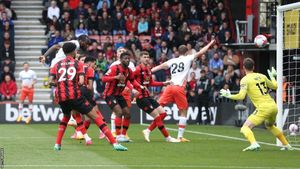Berlin witnessed a pivotal moment on December 16, 2024, as Chancellor Olaf Scholz faced off against the Bundestag, initiating what would become one of the most significant confidence votes in the history of German politics. Scholz called for this vote under Article 68 of Germany's Constitution, effectively asking Parliament to express its confidence as he sought to pave the way for early elections.
The backdrop to this dramatic parliamentary showdown was filled with tension and conflict. The collapse of the governing coalition comprising the Social Democrats (SPD), the Greens, and the Free Democrats (FDP) had set the stage for this historic day. Since the breakup of the coalition early last November—kickstarted by the dismissal of FDP Finance Minister Christian Lindner—Scholz found his government increasingly isolated and unable to pass legislation. Without substantial opposition support, the government lacked the necessary votes to advance its agenda.
Upon facing the Bundestag, Scholz outlined his rationale for the confidence vote: "Die Vertrauensfrage richte ich deshalb heute an die Wählerinnen und Wähler" ("I am addressing the confidence question to the voters today"). This transparent appeal was meant to rally public support as he attempted to navigate the political terrain toward early elections, intended for February 23, 2025. Yet, the atmosphere was charged with skepticism, as many anticipated defeat.
The proceedings of the day were marked by intense debates and exchanges. Following Scholz's opening address, he was met with numerous responses from opposition leaders, including stark rebukes. Christian Lindner, the FDP leader, countered Scholz by saying, "Aber die Bundesrepublik Deutschland darf so nicht regiert werden" ("But the Federal Republic of Germany cannot be governed this way"), critiquing Scholz’s governmental methods and policies. These remarks set the tone for the arguments to come, with the atmosphere heavy with accusation and reproach, indicating deep divisions among the parties.
The session included impassioned speeches, accusations of incompetence, and urgent calls for accountability. Opposition leader Friedrich Merz decried Scholz's handling of the economic crisis, stating, "Sie blamieren Deutschland" ("You are embarrassing Germany"), adding fuel to the fire as he condemned Scholz for failing to address pivotal issues affecting the nation. Scholz, defending his record, lambasted the perceived sabotage from the FDP which he claimed had deteriorated public trust: "Die wochenlange Sabotage ... habe nicht nur der Ampel-Regierung, sondern auch der Demokratie geschadet" ("The weeks-long sabotage has not only harmed the traffic light coalition but also democracy itself").
Despite Scholz's attempts to justify his decisions and to present his vision for the country, skepticism reigned. Many believed it was almost certain he would not secure enough votes to maintain the confidence of Parliament. The math was simple: out of 733 members, Scholz needed 367 votes to retain his position—a target complicated by the opposition’s solid stance and lack of support from coalition partners, particularly the Greens, who signaled potential abstentions.
Scholz's predictions came true, as he suffered defeat during the vote. Almost immediately after the session, he was expected to present himself to Federal President Frank-Walter Steinmeier to propose the dissolution of Parliament. The outcome cast the future of Germany’s government and political stability back to the public forums, with the President’s expected approval to call for fresh elections looming large.
Political leaders reacted swiftly to the developments; even within the SPD, concerns about the coalition’s potential revival or the nature of any new government coalition were prevalent. Robert Habeck, of the Greens, cautioned against naive optimism relating to the upcoming elections, saying, "Alle tun so, als wäre danach alles besser" ("Everyone acts as if things will be all good afterward"), reminding stakeholders about the challenges facing both the incoming government and its responsibilities.
The days leading up to the elections are punctuated by rising questions concerning party strategies and voter expectations. The possibility of continuing political uncertainty looms, even after elections. Alexander Dobrindt from the CSU criticized Scholz for his lack of self-awareness following the coalition collapse, stating, "Das war eine verdammt selbstgerechte Rede" ("That was one damn self-righteous speech") during the heated debates.
With the date now set, February 23, 2025, will be pivotal. All eyes are on how the German electorate will respond, amid calls for stability and governance capability. The outcome of those elections will shape not only Scholz’s political fortunes but also the future dynamics of German democracy.



